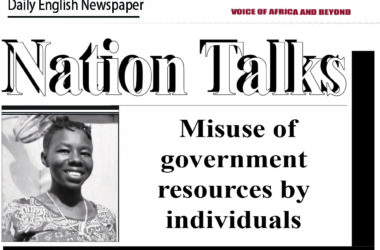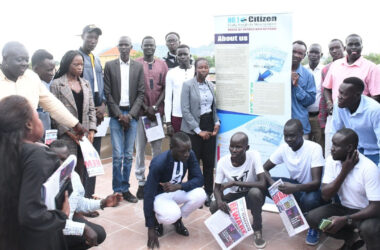By James Ayiek Bath
The World is like a thick forest over crowded by hunters and targets are scarce. Egypt as a desperate beneficiary of the Nile water now is demanding hundred percent share from the Nile water without any contribution to the sources of the Nile.
However, the recent public consultation platform convened by the government of the Republic of South Sudan on July 10, 2022 remains a controversial subject with conflict of interests, after I attended and listened from the experts’ presentations simultaneously.
I noted and realized that, with my academic empirical analysis I wrote previously in part one of this article, articulated scientific, economic, and social impacts of the Sudd- dredging as portrayed in the presentations by the experts on Sudd-wetlands.
Presentations from Deng Majok Chol, stress that Egypt planned dredging of fifty meters deep in the Nile will not only drain the Sudd- wetlands, but shall also drain the underground water reserves.
Having presented and explained international laws with agreements on trans-boundary water resources management, it is noted that ninety percent of Sudd- wetlands lies within geographical boundary of South Sudan.
However, the impact of water insecurity as an intervening variable of climate change, needs a well study scientific research to develop a scientific intervention, with the knowledge of the problem and permanent solution.
Water insecurity includes rampant’ flood and random drought in most parts of South Sudan and the rest. On one hand, dredging according to experts’ presentations is neither a solution to water insecurity, nor a landing space for water security.
The States that are hard hit by indicators of climate change in regard to floods and drought have different stories about water with flood affected population appealing for removal of water, while the drought hit areas campaign for equitable utilization of water resources.
Yes, it is noted with the concern that there are people already affected by water insecurity who need urgent intervention, but nevertheless, scientific indicators proved that quick intervention without scientific guidance could have long term drastic consequences that can never be reverse.
On the other hand, water is oil of the twenty first century, because oil can deplete, but water is renewable with South Sudan water estimated income of $ 1 billion per annum, and underground estimates at $ 2.1 million per annum.
The varying rainfall in South Sudan which the experts puts at the measure of 1500/800 ml at the green belt, and 300 ml at the semi-arid areas is an indication, that water scarcity can hit at any given period if scientific mechanism are not employed early.
Besides socio-economic value, or eco-system, climate and environmental factors, it is worth noting that South Sudan as an independent Country deserves to install hydro-electrical power to reinforce future investments in the Country.
It is recommended that South Sudan can mitigate floods by constructing dikes, water reservoirs, and even build a man-made lake or a dam to store or divert random water from the Sudd-basin for future use.
But what baffled me most, is how Egypt had hysterically and swiftly hurried in dredging machines, while South Sudan government and the people are still armed to the teeth. It is sarcastically fishy maze!
To be continued….
The author can be reached via E-mail: ayiekojames512@gmail.com



